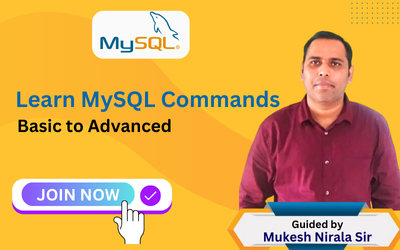MySQL Practical Guide
Join our complete Mysql Practical Guide, designed for both beginners and experienced learners! Under the expert guidance of Mr. Mukesh Nirala and his dedicated team, you will gain practical skills and knowledge to effectively master Mysql. This program is perfect for anyone looking to enhance their coding skills!
English
Last updated
Fri, 25-Oct-2024


